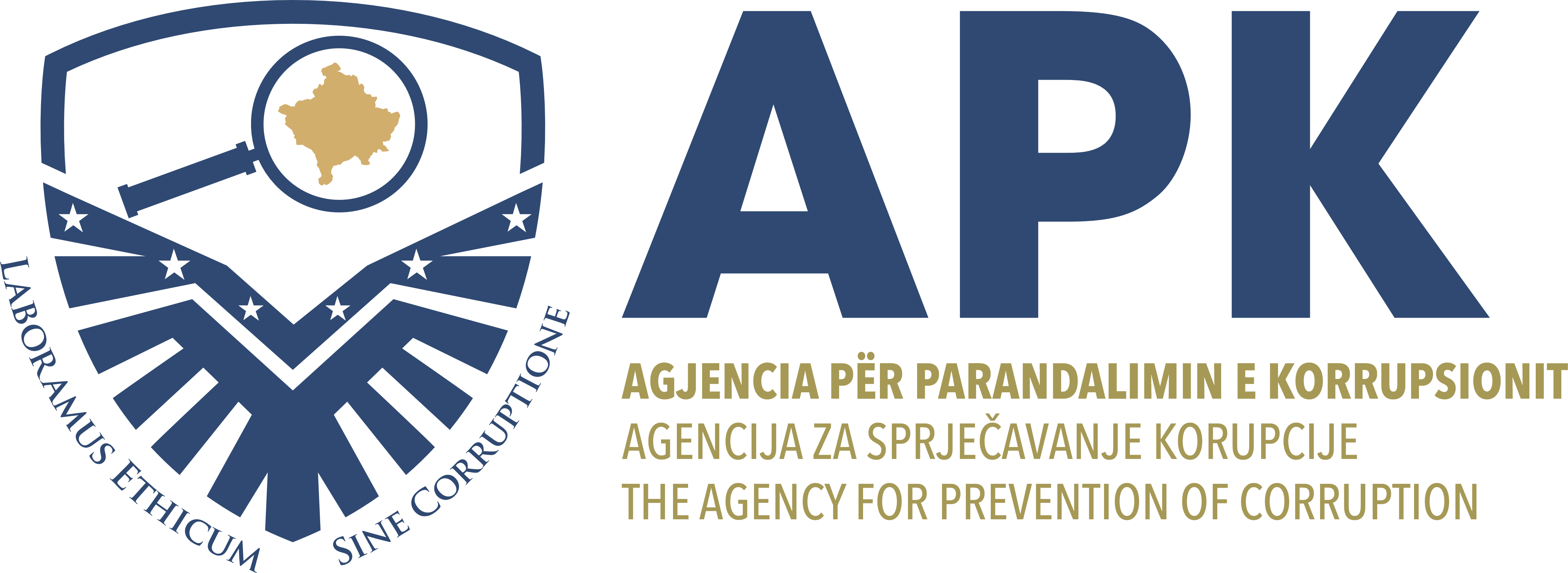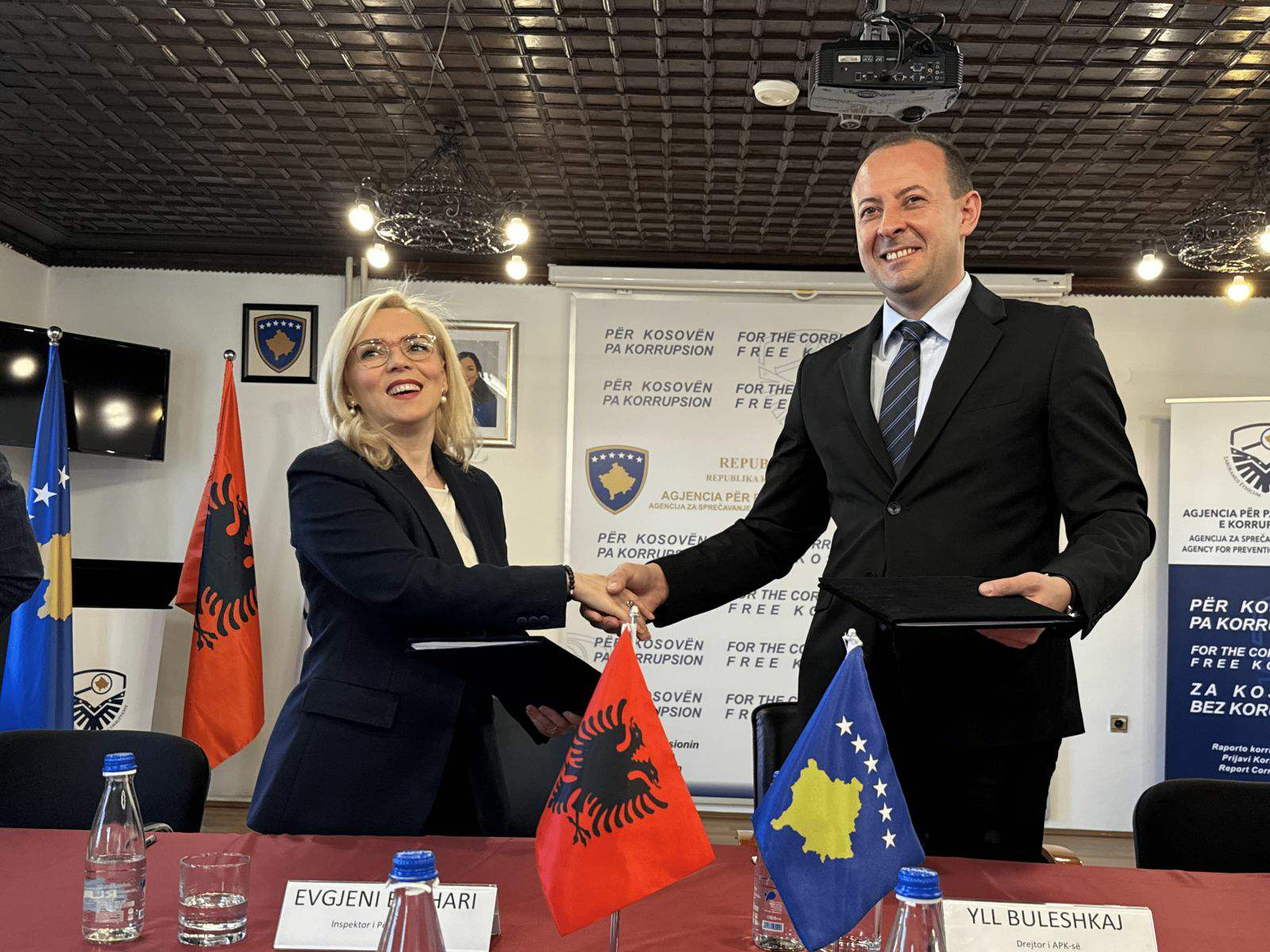Prishtina, 16 February 2024 – In an official ceremony at the premises of the Agency for Prevention of Corruption, High Inspectorate of Declaration and Audit of Assets and Conflict of Interest of the Republic of Albania (HIDAACI) and the Agency for Prevention of Corruption of the Republic of Kosovo (APC) have signed a Memorandum of Cooperation.
The Memorandum of Cooperation aims to improve the institutional activity in the framework of the prevention and fight against corruption through the exchange of best practices in the fields related to the investigation and prevention of corruption, the origin and control of wealth and gifts, the prevention of conflicts of interest in the exercise of the public function, as well as the protection of whistleblowers.
Director of the Agency for Prevention of Corruption – Mr. Yll Buleshkaj, upon thanking the General Inspector of HIDAACI, Mrs. Evgjeni Bashari, for the continuous cooperation and support, emphasized the importance of the formality of cooperation through this memorandum, which is in accordance with the new mandate of the APC and complements the document signed many years ago. The general purpose of the memorandum is to improve the practices of preventing corruption through modern administrative investigations based on the best regional and European practices and Mr. Buleshkaj believes that this memorandum will bring positive and long-lasting changes in the implementation of the mandate of the APC.
Inspector General of HIDAACI, Mrs. Evgjeni Bashari expressed her gratitude and willingness for continuous cooperation, which dates back to the establishment of the counterpart institutions.
Also, Mrs. Bashari stated that the memorandum is an important step towards the modernization and coordination of the approaches of both institutions, adding that this cooperation will further strengthen the capacities of the officials of both institutions and will ensure more efficient and reliable handling of cases within the respective legal mandate. The Memorandum of Cooperation addresses the current challenges of the institutions’ mandate, such as digitalization of services, verification of declared assets, handling of cases of conflict of interest, protection of whistleblowers and institutional transparency towards the public. Forms of cooperation will include joint workshops, conferences, joint projects, development of materials for public information and education, and the like.



